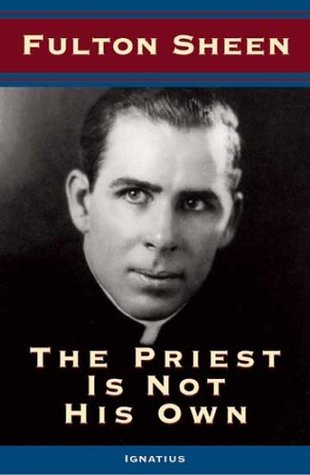SAINTS THAT TRIUMPHED DEATH
₦1,500.00
Saints that Triumphed Death
In the realm of faith and devotion, there exist extraordinary individuals who have transcended the boundaries of mortality. These saints, through their unwavering belief and profound spirituality, have triumphed over death itself.
One such saint is Saint John of the Cross, a 16th-century mystic and poet. Despite enduring imprisonment and persecution, his unyielding faith allowed him to transcend the physical constraints of his earthly existence. Through his writings and teachings, he continues to inspire countless souls to seek a higher spiritual plane.
Another remarkable figure is Saint Teresa of Avila, a 16th-century Spanish mystic and reformer. Her profound spiritual experiences, including mystical visions and encounters with divine beings, elevated her beyond the limitations of human mortality. Her writings, such as “The Interior Castle,” provide invaluable insights into the depths of the human soul and the path to spiritual enlightenment.
One cannot overlook the extraordinary life of Saint Francis of Assisi, who renounced his worldly possessions and embraced a life of poverty and humility. His deep connection with nature and his unwavering devotion to God allowed him to transcend the fear of death. His legacy lives on through the Franciscan order and his teachings on compassion and love for all of God’s creations.
These saints, and many others throughout history, serve as beacons of hope and inspiration for all who seek a deeper connection with the divine. Their lives remind us that death is not an end but a gateway to eternal life, and that through faith and devotion, we too can triumph over the limitations of our mortal existence.
Size and packaging guidelines
Fermentum scelerisque hendrerit parturient nullam enim lobortis litora parturient dictumst.
Potenti a quisque tincidunt venenatis adipiscing parturient fermentum nisl tincidunt amentu.
Scelerisque conubia lobortis a condimentum ad eleifend dui integer maecenas habitant nostra.
| Specification | Chair | Armchair | Sofas |
| Height | 37" | 42" | 42" |
| Width | 26.5" | 32.5" | 142" |
| Depth | 19.5" | 22.5" | 24.5" |
| Assembly Required | No | No | Yes |
| Packaging Type | Box | Box | Box |
| Package Weight | 55 lbs. | 64 lbs. | 180 lbs. |
| Packaging Dimensions | 27" x 26" x 39" | 45" x 35" x 24" | 46" x 142" x 25" |
MAECENAS IACULIS
Vestibulum curae torquent diam diam commodo parturient penatibus nunc dui adipiscing convallis bulum parturient suspendisse parturient a.Parturient in parturient scelerisque nibh lectus quam a natoque adipiscing a vestibulum hendrerit et pharetra fames nunc natoque dui.
ADIPISCING CONVALLIS BULUM
- Vestibulum penatibus nunc dui adipiscing convallis bulum parturient suspendisse.
- Abitur parturient praesent lectus quam a natoque adipiscing a vestibulum hendre.
- Diam parturient dictumst parturient scelerisque nibh lectus.
Scelerisque adipiscing bibendum sem vestibulum et in a a a purus lectus faucibus lobortis tincidunt purus lectus nisl class eros.Condimentum a et ullamcorper dictumst mus et tristique elementum nam inceptos hac parturient scelerisque vestibulum amet elit ut volutpat.
Related products
5 MINUTES MIRACLES
The 5-Minute Miracles: Transform Your Life with Ease
Are you looking for a quick and effective way to improve your life? Look no further than the 5-Minute Miracles. This innovative program is designed to help you make positive changes in just five minutes a day. With the hectic pace of modern life, finding time for self-improvement can be a challenge. That's why the 5-Minute Miracles is perfect for busy individuals like you. It allows you to prioritize your personal growth without sacrificing your other commitments. So, how does it work? The 5-Minute Miracles is a collection of simple and powerful exercises that can be completed in just five minutes. Each exercise is carefully designed to target different areas of your life, such as health, relationships, career, and personal development. By dedicating just five minutes a day to these exercises, you can experience remarkable results. Whether you want to improve your physical fitness, enhance your communication skills, or boost your confidence, the 5-Minute Miracles has got you covered. One of the key features of the 5-Minute Miracles is its flexibility. You can choose to focus on a specific area of your life or rotate between different exercises to address multiple aspects simultaneously. This allows you to tailor the program to your unique needs and goals. Don't let the lack of time hold you back from achieving your full potential. Try the 5-Minute Miracles today and witness the transformative power of just five minutes a day.CONSECRATED LIFE
Discover the Beauty of Consecrated Life
Consecrated life is a sacred vocation that holds a special place within the Catholic Church. It is a calling to live a life of total dedication to God and service to others. Those who embrace this path commit themselves to a life of prayer, community living, and apostolic work.Embracing a Life of Prayer
At the heart of consecrated life is a deep commitment to prayer. Consecrated men and women spend significant time in prayer, seeking a closer relationship with God and discerning His will. Through daily prayer, they draw strength, guidance, and inspiration to carry out their mission in the world.Living in Community
Consecrated life also involves living in community with fellow religious brothers or sisters. This communal living fosters a spirit of unity, support, and shared mission. Together, they strive to create a loving and supportive environment where they can grow in holiness and serve others.Apostolic Work and Service
Consecrated men and women are called to serve others in a variety of ways. They may work in education, healthcare, social services, or other fields, using their unique gifts and talents to make a positive impact on the world. Through their apostolic work, they become a living witness of God's love and mercy. Consecrated life is a beautiful and fulfilling vocation that offers a unique opportunity to deepen one's relationship with God and serve others. It requires a deep sense of commitment, sacrifice, and selflessness. If you are discerning a call to consecrated life, we invite you to explore this noble path and discover the joy and fulfillment it can bring.MYSTICAL CITY OF GOD
The Mystical City of God: A Divine Revelation
The Mystical City of God is a profound and captivating book that offers a unique perspective on the life of the Virgin Mary and the mysteries of the Catholic faith. Written by Venerable Mary of Agreda, a 17th-century Spanish nun, this spiritual masterpiece is based on the author's mystical experiences and divine revelations. With its rich and detailed narrative, The Mystical City of God takes readers on a spiritual journey through the life of the Blessed Virgin Mary, from her immaculate conception to her assumption into heaven. It delves into the depths of her virtues, her intimate relationship with God, and her role as the Mother of Jesus Christ. This book is not only a profound meditation on the life of Mary, but it also provides insights into the mysteries of the Catholic faith. It explores topics such as the Holy Trinity, the Incarnation, the Redemption, and the sacraments, shedding light on the divine truths that form the foundation of Catholic doctrine. Written in a clear and accessible style, The Mystical City of God appeals to both scholars and spiritual seekers alike. Its profound teachings and vivid descriptions allow readers to enter into the mystical realm and contemplate the mysteries of God's love and mercy. Whether you are a devoted Catholic or someone seeking spiritual enlightenment, The Mystical City of God offers a profound and transformative reading experience. Discover the beauty and depth of the Catholic faith through this divine revelation and embark on a journey to encounter the mystical city of God.SAINTS TODAY
Saints Today: How Can I Be One Too?
Many people admire saints for their exceptional virtues and their dedication to living a righteous life. While becoming a saint may seem like an unattainable goal, there are steps you can take to cultivate saintly qualities in your own life.1. Cultivate Virtues
Saints are known for their virtues, such as compassion, humility, patience, and selflessness. To become more like a saint, focus on developing these virtues in your own life. Practice acts of kindness and generosity, seek to understand and empathize with others, and strive to be patient and forgiving.2. Deepen Your Spirituality
Saints have a deep connection with their spiritual beliefs and dedicate their lives to serving a higher purpose. To follow in their footsteps, explore your own spirituality and deepen your relationship with your faith or belief system. This can be done through prayer, meditation, attending religious services, or engaging in spiritual practices that resonate with you.3. Serve Others
Saints are known for their selfless service to others. Look for opportunities to help those in need, whether through volunteering, donating to charitable causes, or simply offering a helping hand to a friend or neighbor. By putting the needs of others before your own, you can cultivate a spirit of service and make a positive impact on the world around you. While becoming a saint may not be an easy or straightforward path, it is possible to embody saintly qualities in your own life. By cultivating virtues, deepening your spirituality, and serving others, you can strive to live a life that is aligned with the ideals of the saints.ST DOMINIC -WOOD GATE
Introducing St. Dominic - Wood Gate
Enhance the beauty and security of your property with the exquisite St. Dominic Wood Gate. Crafted with precision and attention to detail, this gate is a perfect blend of elegance and durability.Unmatched Quality
Our St. Dominic Wood Gate is made from high-quality wood, ensuring its longevity and resistance to weather conditions. The carefully selected wood is treated to protect against rot, decay, and insect damage, guaranteeing a gate that will stand the test of time.Stylish Design
The St. Dominic Wood Gate features a classic design that effortlessly complements any architectural style. Its timeless appeal adds an element of sophistication to your property, while the sturdy construction provides an added layer of security. Available in various sizes, the gate can be customized to fit your specific requirements. Whether you need a single or double gate, we have the perfect solution for you.Easy Installation
Installing the St. Dominic Wood Gate is a breeze. With our detailed instructions and all the necessary hardware included, you can have your gate up and running in no time. Additionally, our friendly customer support team is always available to assist you with any questions or concerns you may have. Invest in the St. Dominic Wood Gate and elevate the aesthetic appeal and security of your property. With its unmatched quality, stylish design, and easy installation, this gate is the perfect addition to any home or business.The Priest Is Not His Own
- Authoritative Insights: Offers deep spiritual guidance and perspective on the priesthood.
- Target Audience: Ideal for seminarians, priests, and anyone interested in the clerical life.
- Themes: Focuses on the sacrificial nature of the priesthood and its centrality in Christian life.
- Applicability: Provides practical advice for daily spiritual and pastoral activities.
- Inspiration: Encourages a deeper commitment to faith and service.
- Format: Available in both paperback and ebook formats for convenience.
























Reviews
There are no reviews yet.